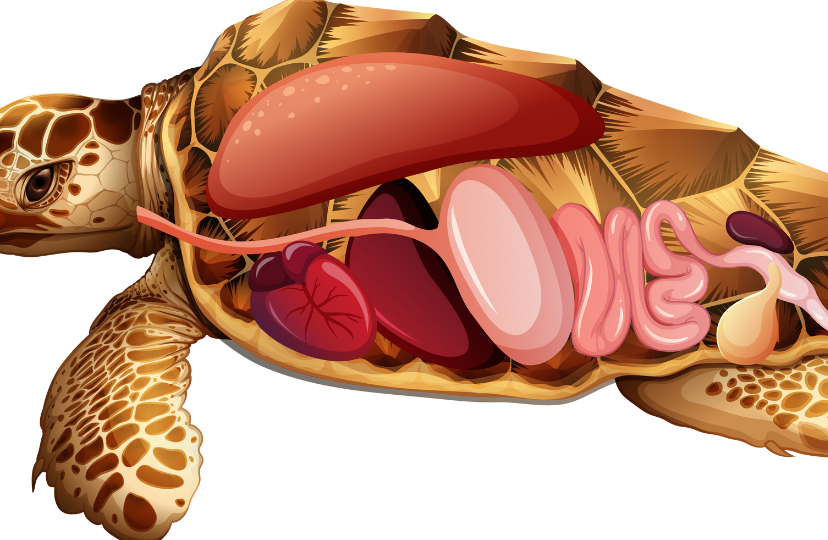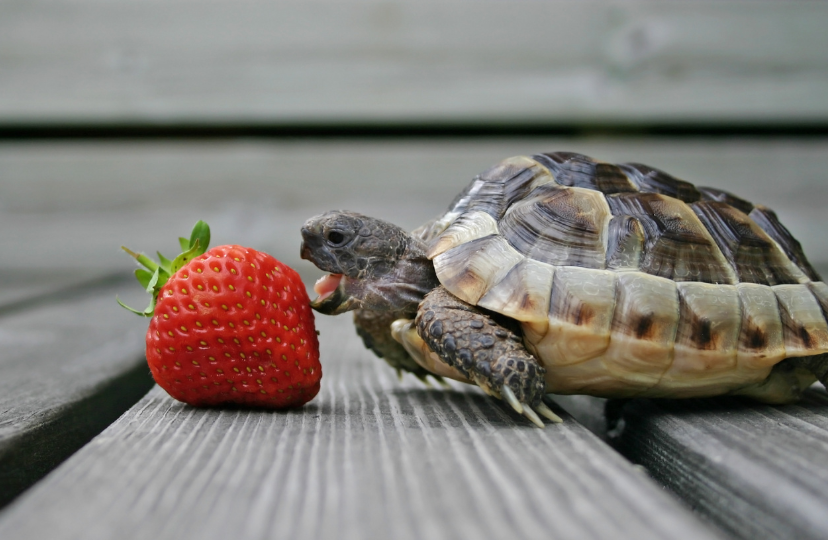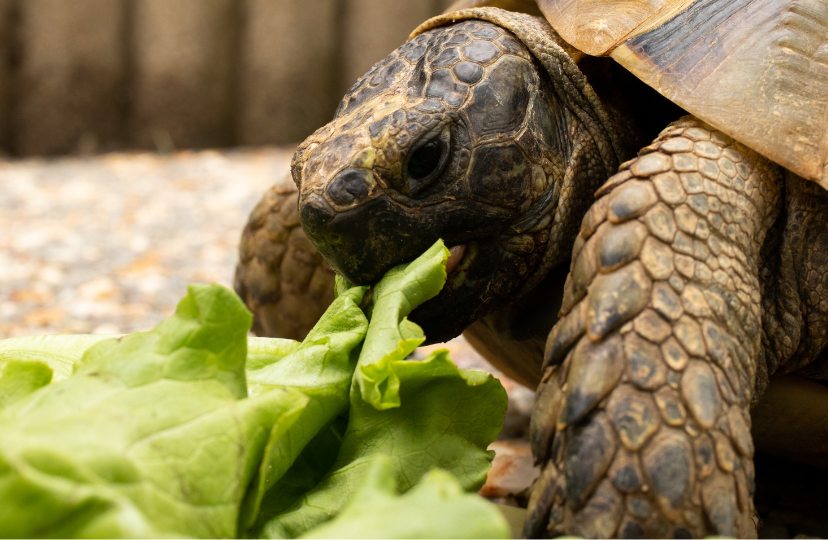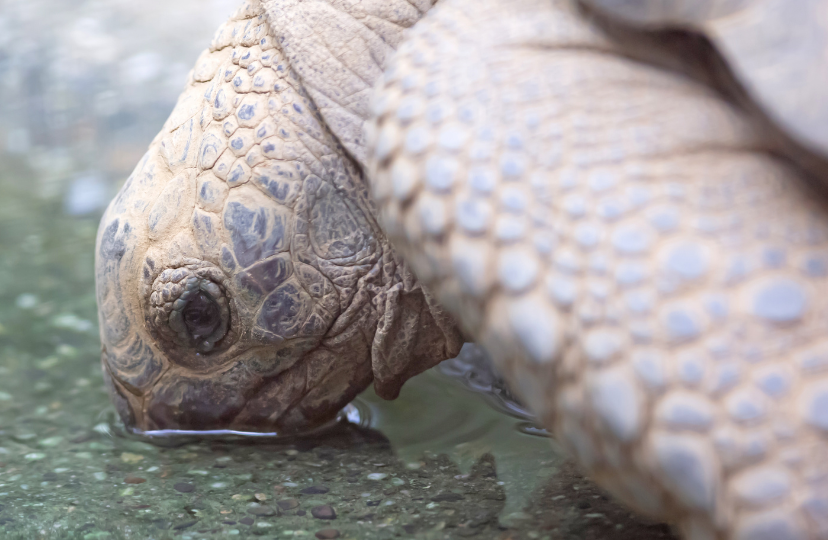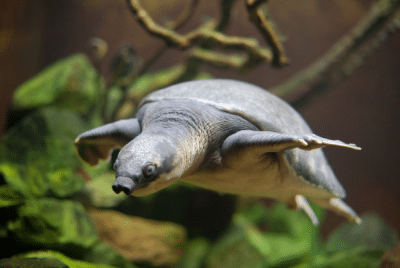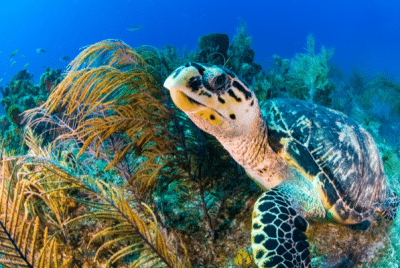Turtle Poop: The Dirty Truth!
Introduction: Why Discuss Turtle Poop?
Have you ever thought about turtle poop? You know, actual feces/excrement? Sounds weird, right? But here’s the thing – the state of your turtle’s poop can tell you a lot about its health. It’s like reading a little brown (or green) diary about their recent meals and general well-being.
The Anatomy of Turtle Digestion
The Digestive Tract of a Turtle
Just like us, turtles have a fascinating digestive system. The journey starts in their mouth, travels down the esophagus, and ends at the other end with, you guessed it, poop!
The digestive system is both intricate and intriguing. The turtle’s digestive tract is specially adapted to their omnivorous diet, ensuring they can efficiently break down both plant and animal matter. Starting with their sharp beak, which allows them to nip and tear food without the need for teeth, the process of digestion begins. As the food travels down their esophagus, it’s met with digestive enzymes, priming it for nutrient extraction. The turtle’s stomach, a crucial component of their digestive system, works tirelessly to further break down food particles. This is followed by the small intestine, which plays a pivotal role in nutrient absorption, ensuring our shelled friends receive the energy they need.
What’s even more fascinating is the role of the turtle’s large intestine, which is responsible for absorbing water and forming feces. But, what sets turtles apart is their slow metabolic rate. This means the entire digestive process can take a bit longer compared to other animals. So, the next time you see a turtle munching away, remember there’s an intricate system at work inside, perfectly evolved over millions of years. For turtle enthusiasts, understanding the turtle’s digestive tract offers insights into their care, diet, and overall well-being, making it a topic well worth delving into.
The Importance of Monitoring Turtle Poop
Color and Consistency Indicators
Turtle enthusiasts and pet owners often wonder about the color and consistency indicators of turtle poop. It’s not just a quirky curiosity; understanding these aspects can be pivotal for the health assessment of these beloved reptiles. Healthy turtle excrement typically boasts a firm consistency and a greenish-brown hue, reflecting a balanced diet rich in leafy greens and essential nutrients.
When turtle poop deviates from this norm, such as turning watery, too dark, or unusually light, it might be signaling dietary imbalances, potential infections, or digestive troubles. For instance, white, chalky segments in the poop might indicate urates, which are entirely normal in moderation. However, excessive amounts can suggest dehydration or kidney issues. Similarly, if the feces appear too loose or watery, this could be a sign of diarrhea, possibly due to overfeeding or a more concerning health issue.
By regularly observing the color and consistency of turtle poop, owners can quickly spot potential health problems, making these indicators invaluable tools for ensuring our shelled friends’ well-being. Regularly monitoring these signs and acting promptly on any abnormalities can make a world of difference in turtle care.
Frequency and Quantity
Next up, we must crucially discuss the ever important subject of frequency and quantity of turtle poop. Much like other indicators of health, the regularity and volume of a turtle’s excrement can provide keen insights into its well-being and diet. A typical healthy turtle will have consistent bowel movements that align with its food intake and digestion rate.
Generally, a sudden change in the frequency of their droppings – be it an increase or decrease – can be an early sign of dietary imbalances, potential illnesses, or environmental stressors. The quantity is equally telling. While overfeeding might result in larger and more frequent stools, underfeeding or certain health issues could lead to decreased excretion. It’s essential to monitor the poop’s consistency too; firm, greenish-brown droppings are usually a good sign.
If you’re concerned about your turtle’s pooping patterns, examining factors like diet, habitat temperature, and water quality can offer solutions. And always remember, understanding the frequency and quantity of turtle poop isn’t just a quirky interest—it’s a genuine step towards responsible and attentive turtle care!
Common Concerns and Remedies
Constipation in Turtles
Turtles, like many other creatures, aren’t immune to digestive woes. Constipation in turtles is a concern that every reptile enthusiast should be familiar with. These gentle creatures have a unique digestive anatomy, and sometimes, the food they ingest doesn’t pass as smoothly as it should. A diet lacking in fiber, insufficient hydration, or an environment that’s too cold can lead to constipated turtles.
When a turtle is constipated, it might become lethargic, show reduced appetite, or have a swollen abdomen. Monitoring the frequency and consistency of their poop can provide early warning signs. It’s vital to ensure they consume a balanced diet with plenty of leafy greens and maintain a properly heated habitat. Hydration plays a crucial role, so fresh and clean water should always be available. Furthermore, occasional gentle massages can stimulate bowel movement and alleviate their discomfort. If these measures don’t produce results, seeking veterinary advice is essential.
Remember, a turtle’s digestive health can be a mirror to its overall well-being. By optimizing their diet and environment and being vigilant to signs of constipation, turtle keepers can ensure their pets remain healthy and active. Optimizing search queries like “signs of constipation in turtles” or “turtle digestive health” can guide enthusiasts to vital information, like this, ensuring their shelled friends lead a comfortable, constipation-free life.
Diarrhea and Its Causes
On the flip side, turtles can experience digestive upsets that manifest as diarrhea, and understanding its causes is crucial for any dedicated turtle owner. Diarrhea in turtles often presents as watery or unusually soft feces, sometimes with a foul smell or unusual coloration. The reasons behind turtle diarrhea can be multifaceted. Dietary causes are common; feeding your turtle inappropriate foods, overfeeding, or sudden changes in diet can lead to digestive disturbances.
Exposure to contaminants or toxins, either in their food or environment, can also be detrimental. Parasitic infections, such as from worms or protozoa, are another leading cause of diarrhea in turtles. These invaders can disrupt the natural balance of the turtle’s gut flora. Furthermore, bacterial infections, often stemming from poor habitat hygiene, can severely impact their digestive health. It’s also worth noting that environmental stressors, like incorrect water temperature or poor water quality, can slow down their metabolism and lead to digestive issues.
For turtle owners, regularly monitoring the consistency and frequency of their pet’s feces can offer early indicators of potential health problems. If a turtle exhibits persistent diarrhea, it’s essential to consult with a reptile veterinarian to ensure its health and longevity. Remember, understanding and addressing the root causes of diarrhea is key to ensuring your turtle remains vibrant and active.
The Impact of Diet on Turtle Poop
Diet and Digestive Health
Our beloved turtles have digestive systems that are intricately linked with their dietary choices, making the relationship between food and digestive health in turtles a critical area of focus for pet owners and enthusiasts. Just as with humans, a turtle’s digestive health is largely influenced by what it consumes. Offering a balanced diet — a mix of high-quality turtle pellets, fresh vegetables, and occasional protein sources like insects or fish — can promote smoother digestion, resulting in healthier, more consistent turtle poop.
However, when turtles are fed foods that are not appropriate for their species or age, it can lead to issues such as constipation, diarrhea, or even long-term metabolic disorders. The importance of clean water in a turtle’s habitat cannot be overstated, as it aids not just in hydration but also in digestion. Moreover, understanding that turtles’ digestive processes can be slower than other animals, especially in cooler temperatures, is key to maintaining their gastrointestinal wellbeing.
Regularly monitoring the state of a turtle’s droppings is an effective way to gauge their digestive health, providing insights into any potential dietary adjustments or medical attention they might need. As the saying goes, “You are what you eat,” and in the world of turtles, this adage holds true, underscoring the essential role food plays in their overall digestive health.
Foods to Avoid
Although turtles are often regarded as hardy creatures, actually have sensitive dietary needs that require mindful attention. While their diverse menu may encompass a variety of both plant-based and protein-rich sources, there are certain foods to avoid for most turtles to ensure optimal health.
First and foremost, dairy products like milk or cheese are a strict no-go. Turtles lack the necessary enzymes to digest lactose, which can lead to severe gastrointestinal distress. Similarly, high-fat processed foods, often found in human diets, are unsuitable for our shelled friends. These can not only cause obesity but also disturb their overall metabolic balance.
Another surprising food item to steer clear of is raw meat, primarily due to the risk of bacterial contamination and the potential for an unbalanced calcium-to-phosphorus ratio. Furthermore, while fruits can be a delicious treat, it’s essential to avoid citrus fruits, as their acidic nature can upset a turtle’s stomach.
Lastly, avoid feeding turtles foods high in oxalates, like spinach or beet greens, too frequently. These can bind calcium and hinder its absorption, leading to potential bone problems. By steering clear of these foods and prioritizing a turtle-friendly diet, you can ensure your pet remains active, healthy, and happy for years to come.
Environmental Factors and Turtle Poop
Temperature and Digestion
As ectothermic reptiles, turtles rely heavily on external temperatures to regulate their internal body processes, and digestion is no exception. Temperature’s role in turtle digestion is pivotal, and understanding this relationship is crucial for anyone looking after these fascinating creatures.
When the environment is warm, a turtle’s metabolic rate accelerates, promoting efficient food breakdown and nutrient absorption. Conversely, in cooler conditions, their digestive processes slow down, which can lead to undigested food in their system. This is why many turtle enthusiasts often emphasize the importance of maintaining the optimal temperature in turtle habitats, especially if they’re kept in captivity.
A turtle in an environment that’s too cold may refuse food altogether, or if they do eat, they risk developing digestive complications from the slowed metabolic processes. On the other hand, excessively high temperatures can speed up digestion too much, potentially robbing them of the necessary time to extract all the nutrients they need from their food.
Striking a balance, and ensuring your turtle’s environment mirrors their natural habitat as closely as possible, can make all the difference in their digestive health. For anyone invested in turtle care, being aware of the impact of temperature on turtle digestion is not just essential—it’s a key component in ensuring their overall well-being.
Water Quality
Clean water plays an integral role in the digestion process for turtles, an often overlooked but crucial aspect of their overall health and well-being. Turtles, whether freshwater or marine species, rely on clean water not only for hydration but also as an environment where they hunt, feed, and ultimately digest their food.
When turtles consume food, the quality of water in their habitat directly impacts how effectively they can break down and process nutrients. Clean water ensures that harmful contaminants or toxins don’t interfere with the turtle’s digestive enzymes and gut flora. Moreover, water quality can affect the turtle’s appetite; polluted or chemically imbalanced water can suppress their natural hunger instincts, leading to reduced food intake and digestive complications.
Furthermore, the temperature of clean water remains more consistent, ensuring that turtles’ metabolic rates remain stable, further aiding digestion. In essence, for turtles to have optimal digestion and nutrient absorption, maintaining a habitat with clean, filtered, and dechlorinated water is non-negotiable.
Those invested in turtle care, whether hobbyists or professionals, must prioritize water cleanliness to ensure these majestic creatures thrive and benefit from efficient digestion. After all, the symbiotic relationship between clean water and proper digestion is paramount for turtles’ longevity and vitality.
Conclusion: The Significance of Poop
Who knew turtle poop could be so insightful? By keeping an eye on their droppings, you can ensure your turtle stays happy and healthy. After all, a turtle’s poop is more than just waste; it’s a window into their well-being!
FAQs
- What color should healthy turtle poop be?
- Typically, a healthy turtle’s poop will be greenish-brown and of a firm consistency.
- How often should turtles poop?
- It varies but monitor for any drastic changes in frequency.
- Can I help my turtle if it’s constipated?
- Yes, soft leafy greens and belly massages can help. If persistent, consult a vet.
- What should I do if my turtle has diarrhea?
- Monitor its diet, ensure it’s hydrated, and consult a vet if it continues.
- How can I ensure my turtle has a healthy digestive system?
- Offer a balanced diet, clean water, and maintain a proper temperature in its environment.

